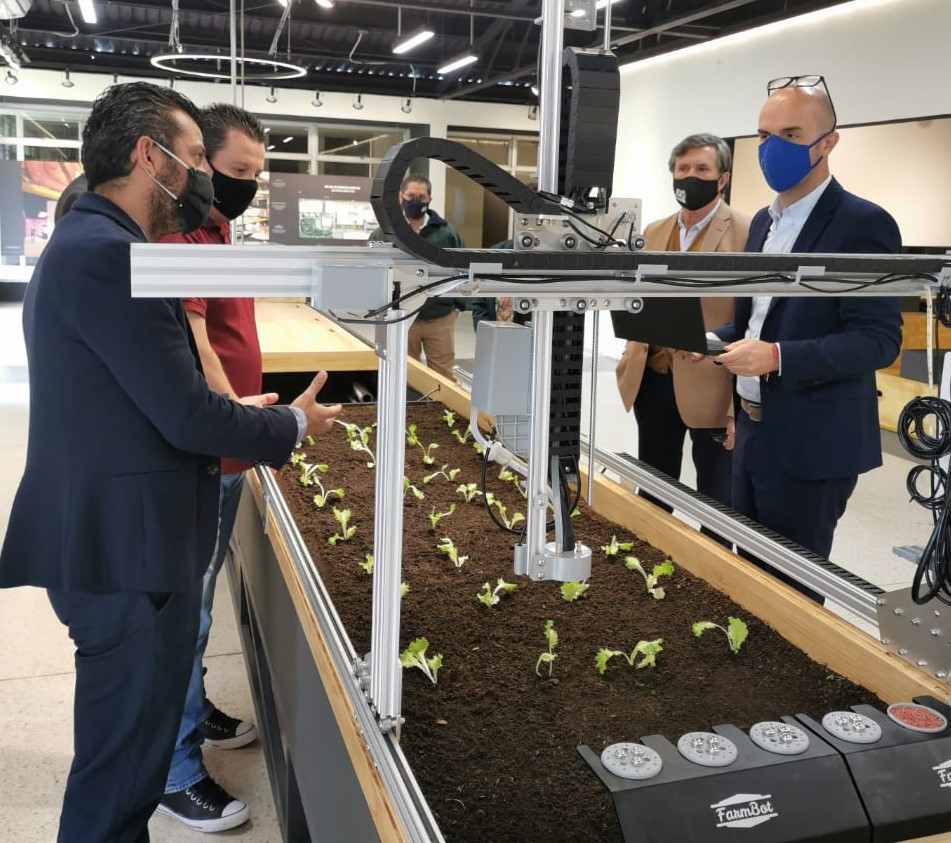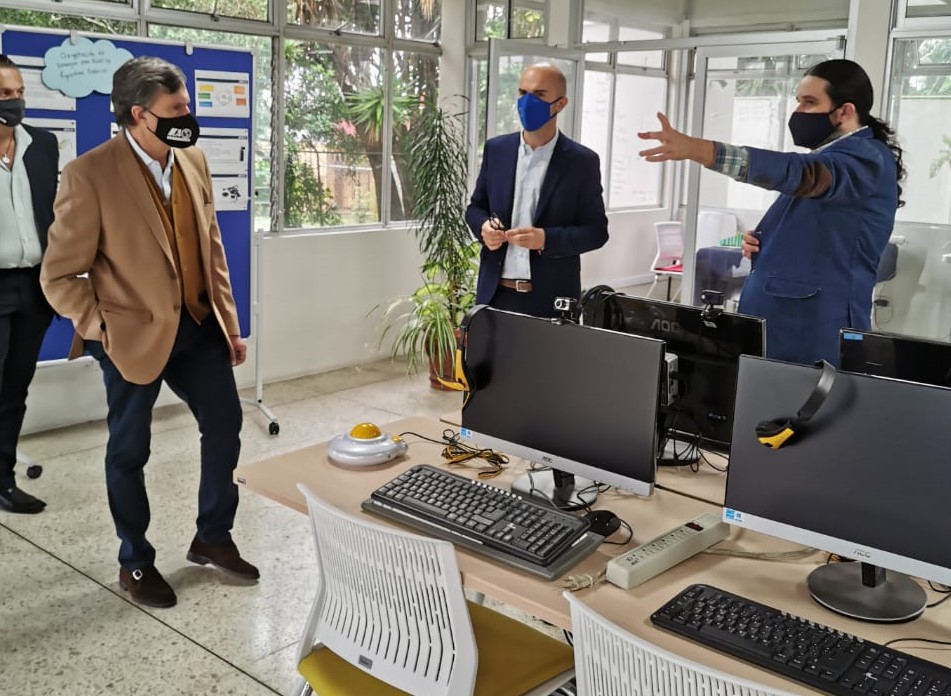The EU’s Head of Regional Cooperation and the Director General of IICA agreed that the programs they are promoting to strengthen Central American food security should focus on digitization and make greater use of ICTs.

San Jose, 9 November 2020 (IICA). The European Union (EU) and the Inter-American Institute for Cooperation on Agriculture (IICA) will strengthen their relationship to develop impactful solutions to food security issues in Central America, as agreed by authorities from both organizations during a meeting in San Jose.
Alberto Menghini, the EU’s Head of Regional Cooperation in Central America, Costa Rica and Panama, and Manuel Otero, Director General of IICA, reviewed the progress of joint projects developed by the two entities in the region, namely the Central American Program for Integrated Coffee Rust Management (PROCAGICA) and the Adapted Agroforestry Systems for the Central American Dry Corridor (AGRO INNOVA).
Menghini expressed his satisfaction with the swiftness with which IICA had adapted the technical cooperation it provides through both programs to the current context of the pandemic. He and Otero agreed to strengthen linkages between the EU and the Institute and to prioritize digital agriculture and the use of virtual tools to strengthen agricultural extension in Central America.
“Despite the health crisis, significant progress has been achieved, and we are very pleased with the way in which IICA has adapted to this new reality we are experiencing. We learned about the remote technical assistance that has been provided to small-scale coffee farmers in Central America through networks, WhatsApp and phone apps, which is very interesting and enables us to reach beneficiaries more directly, even amidst the difficulties we are currently facing”, stated Menghini during a tour of IICA.
“Without science and technology, it would be very difficult for agriculture to meet the productive, environmental and social challenges it faces. For IICA, food systems are actually agrifood systems, because agriculture is the sector that produces food for the world’s population. As such, it requires all the support it can get to incorporate technological advances in order to meet this tremendous challenge”, explained Otero.
“The application of biotechnology and biosafety in agriculture must go hand in hand, and the incorporation of information and communication technologies (ICTs) into agriculture can help to attract more youth to this vital activity for humanity”, he added.
At the Institute’s Headquarters, Otero and Menghini visited the Interpretive Center for Tomorrow’s Agriculture (CIMAG) and the Fab Lab, a technological innovation laboratory for agriculture. Through these initiatives, IICA is demonstrating the ways in which new technologies are transforming agriculture in the Americas, and that agriculture can be an appealing area of work for young professionals.

They also toured the Typical Rural House and the Plaza of Agriculture in the Americas project, which are two initiatives through which IICA is strengthening its ties with neighboring communities.
These two initiatives, together with CIMAG and the Fab Lab, form part of IICA’s vision to be an organization with “open doors” whose physical and virtual platforms enable primary, secondary and university students to discover the potential of agriculture in the Americas and the possibilities for innovation that science and technology can bring to the sector.
“IICA is shining the spotlight on issues related to technology, digitization and innovation, which have become even more pressing during the pandemic. IICA’s efforts in this regard are very interesting”, concluded Menghini.
More information:
Institutional Communication Division of IICA.
comunicacion.institucional@iica.int











